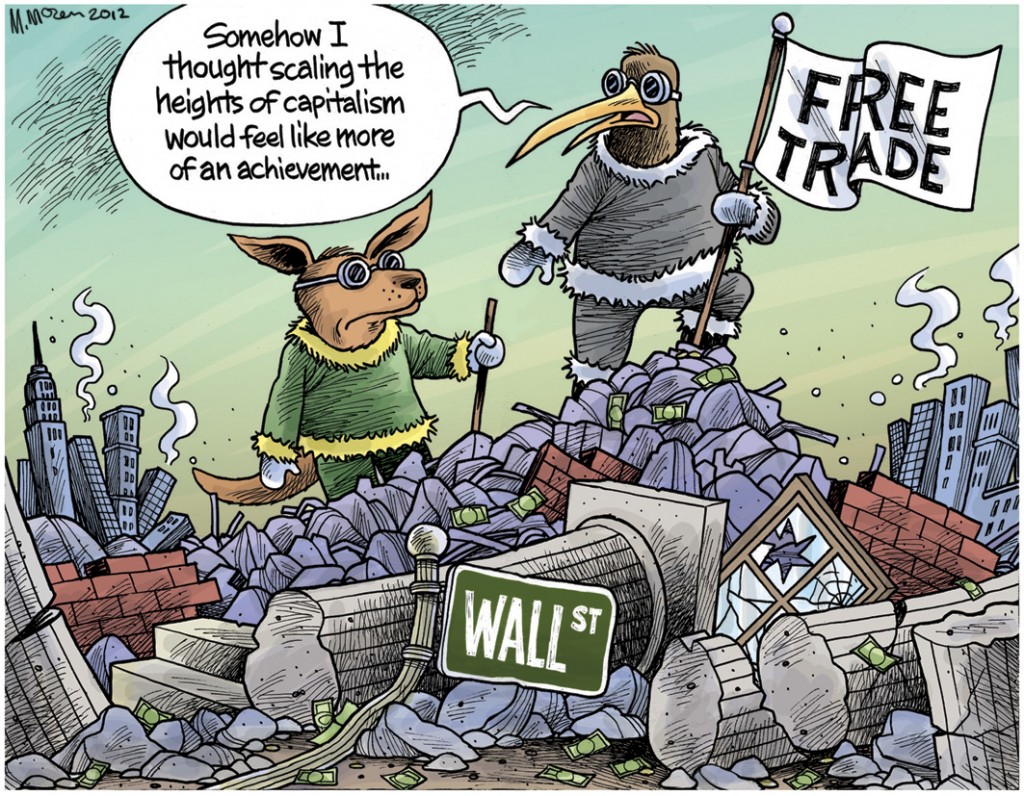Jeffrey Frankel writes: Previous trade agreements have benefited the US (and its partners). The most straightforward argument for TPP is that similar economic benefits are likely to follow.
The economic arguments for the gains from trade go back to David Ricardo’s classic theory of comparative advantage. Countries benefit most from producing and exporting what they are relatively best at producing and exporting, and from importing what other countries are relatively better at producing.
Trade boosts productivity, which is why exporters pay higher wages than other companies, on average – an estimated 18% higher in the case of US manufacturing. And the purchasing power of income is enhanced by households’ opportunity to consume lower-priced imported goods. The cost savings are especially large for food and clothing, purchases that account for a higher proportion of lower-income and middle-class households’ spending.
American trade debates have long been framed by the question of whether a policy will increase or reduce the number of jobs. This concern is a first cousin to the old mercantilist focus on whether a policy will improve or worsen the trade balance. A “mercantilist” could be defined as someone who believes that gains go only to the country that enjoys a higher trade surplus, mirrored by losses for the trading partner that runs a correspondingly higher deficit.
Even by this sort of reasoning, one could make an “American” case for the ongoing trade negotiations. The US market is already rather open; TPP participants such as Vietnam, Malaysia, and Japan have higher tariff and non-tariff barriers against some products that the US would like to be able to sell them than the US does against their goods. Liberalization would thus benefit US exports to Asia more than Asian exports to the US. The Essence of Trade

